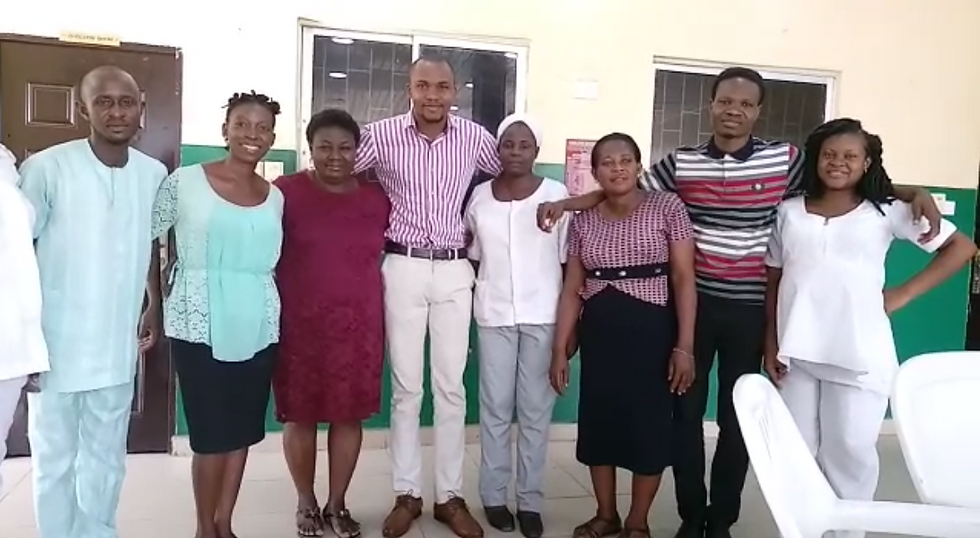
Giving back
Why
-
Inaccessibility to orthodox healthcare in rural Nigeria due to the prohibitive cost of limited interventions and unavailability of qualified personnel. As a result, my family and other residents in the community I called home growing up had poor health-seeking behaviour
-
Prevalence of avoidable illnesses and consequent high mortalities from complications due to late diagnosis and inefficient treatment among community residents
What
I decided to become a medical doctor at an early age; joined an NGO between 2010 & 2014 as a medical student volunteer and proposed the creation of a medical team tasked with initiatives aimed at making orthodox healthcare accessible in rural communities; became the first medical doctor in my family and immediate community
How
Having completed my secondary school education and upon passing the West African Senior School Certificate Examination with 6 distinctions out of 7 subjects, I applied to and was admitted into the School of Medicine, the University of Benin in 2006
As a medical student, I joined a non-profit organization, Ultimate Tender Help Foundation, where I proposed to lead efforts targeted at making healthcare more equitable in target underserved rural communities. The leadership of the organization accepted this and named me the director of medical services, graciously engaging me in their outreach plans thereafter.
Leveraging my relationship with other medical/dental/optometry students and healthcare professionals from the University of Benin and the affiliate University of Benin Teaching Hospital, I successfully mobilized them to participate in these outreaches for free. By way of compensation, however, I convinced the leadership of the non-profit to issue certificates of participation to participants.
We also reached out to local pharmaceutical companies for drugs and received drug donations including anthelmintics, antimalarials, antibiotics, antihypertensive, and oral hypoglycemic agents among other drug classes.
In spite of daring constraints to our commitment, our range of services across the many communities we visited included diabetes screening, hypertension screening, dental checks, eye checks, and other minimal laboratory services. We also provided health education and counselling, intervened, and referred for follow up/further assessment at partner facilities when appropriate.
The project impacted thousands of community residents and served as the first interaction with orthodox healthcare for most.
During my national service year as a corp physician, sometime after my adventure at the non-profit, I often encouraged my colleagues to visit community primary schools as part of our Community Development Service (CDS) activities. There, I gave health education and practical hygiene lessons to staff and pupils. These were well received and nostalgic for me. It felt awesome to be in a position to give to others what was out of my reach growing up.



